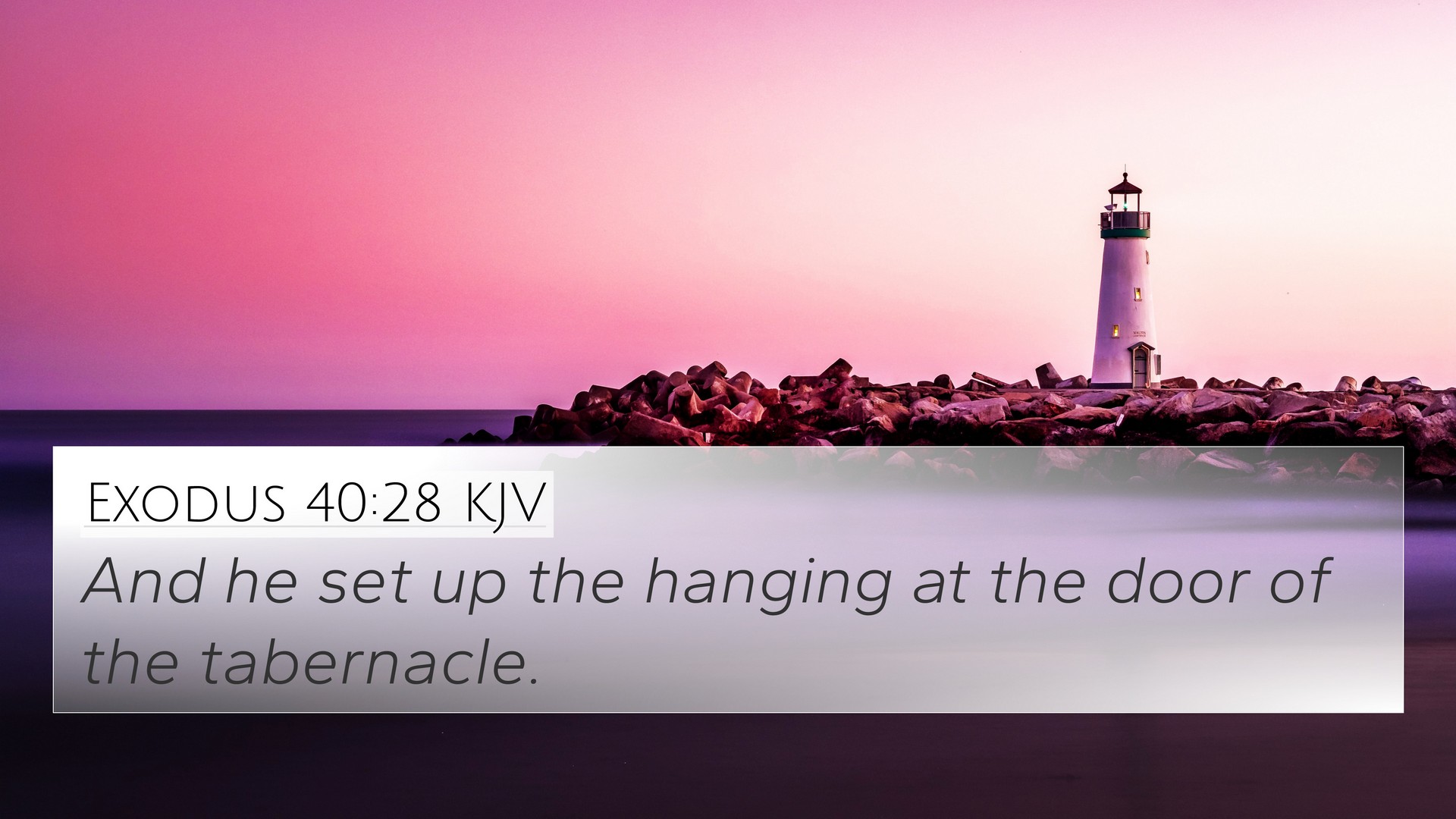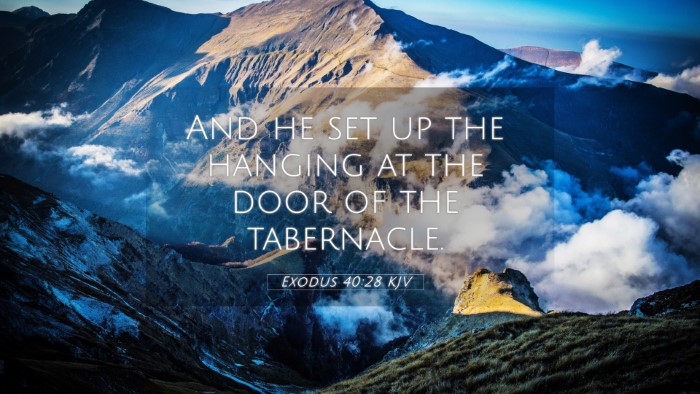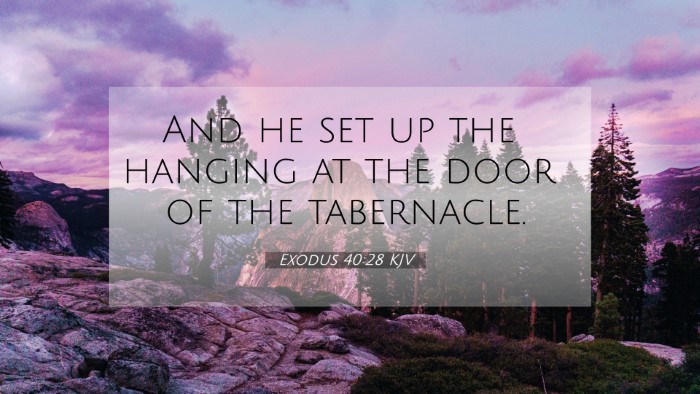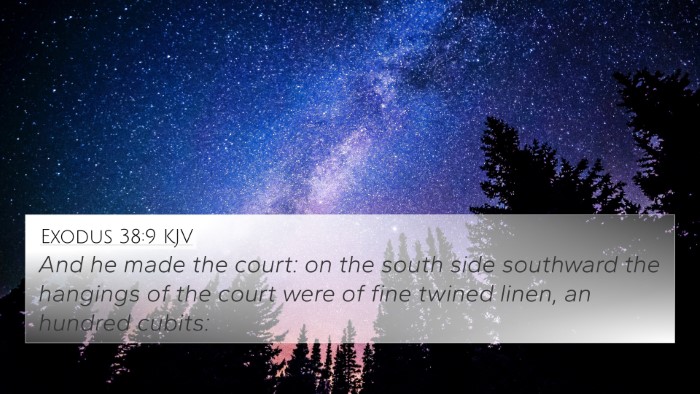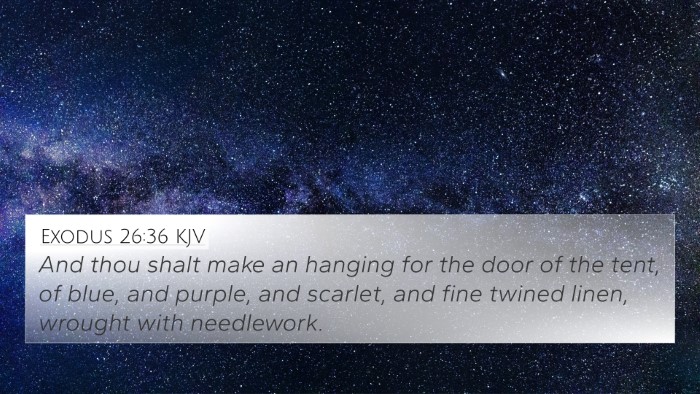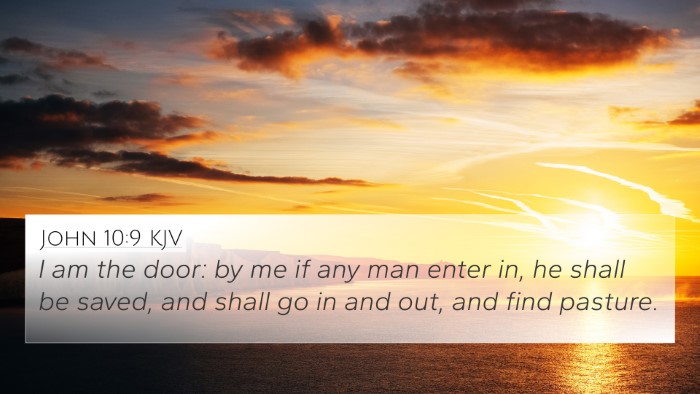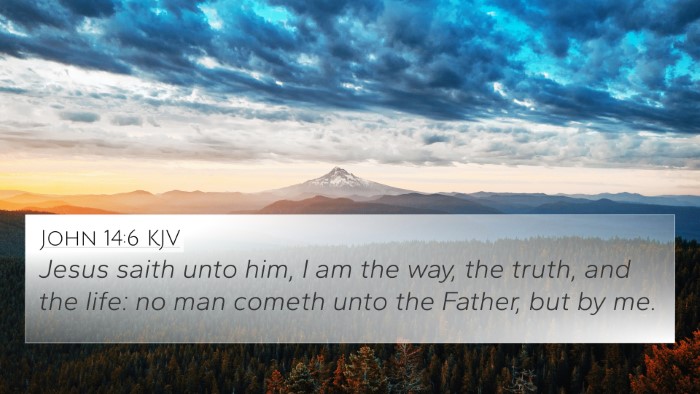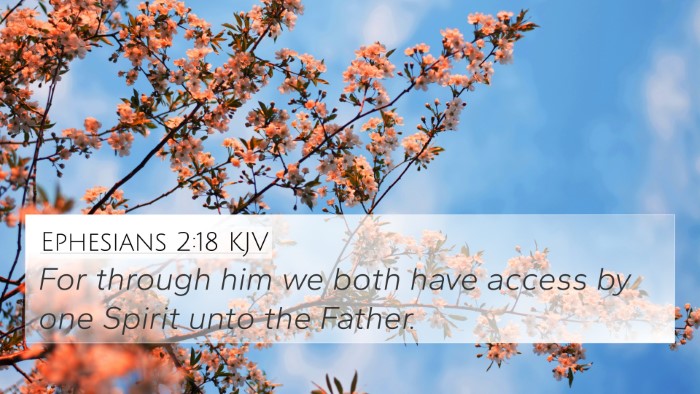Understanding Exodus 40:28
Exodus 40:28 states: "And Moses went in, and covered the tent of the congregation: and he put the covering upon it, as the Lord commanded him." This verse serves as a significant conclusion to the detailed instructions and the work of the tabernacle's construction.
Summary and Meaning
The act of Moses covering the tent represents obedience and the fulfillment of God's commandments. Throughout the Old Testament, the tabernacle is a key symbol of God's presence among His people. Moses, acting on God's directives, demonstrates leadership and faithfulness.
Commentary Insights
Matthew Henry's Commentary
Matthew Henry emphasizes the importance of Moses’ obedience. He notes that it shows the seriousness with which Moses approached God's commands, highlighting that the success of the tabernacle was contingent upon its adherence to divine specifications.
Albert Barnes' Notes
Albert Barnes discusses the significance of the "covering of the tent." He connects it to God's glory that fills the tabernacle, illustrating that it is not merely a physical covering but a manifestation of God’s presence among His people, stressing that God desires to dwell with His creation.
Adam Clarke's Commentary
Adam Clarke elaborates on the materials used for the covering, emphasizing their indicative nature of God’s protection and care. Clarke suggests that by covering the tent, Moses was fulfilling a divine purpose, reinforcing that the tabernacle was a holy place designed for the worship and meeting of God.
Cross References for Exodus 40:28
- Exodus 25:8-9: "And let them make me a sanctuary; that I may dwell among them." This foreshadows God's desire for a dwelling place.
- Hebrews 9:1-5: Discusses the earthly tabernacle and its significance in relation to the heavenly sanctuary.
- Leviticus 26:11-12: Details God's promise of dwelling among His people, reinforcing the theme of divine presence.
- Psalm 132:7: "We will go into his tabernacles: we will worship at his footstool." Acknowledges worship within the tabernacle.
- John 1:14: "And the Word was made flesh, and dwelt among us." Relation to Christ as the ultimate fulfillment of the tabernacle.
- Revelation 21:3: Explains God's dwelling place among people at the end of times, connecting to the original intent of the tabernacle.
- 1 Corinthians 3:16: Emphasizes that believers are now the temple of God, linking the Old Testament with the New.
Thematic Connections
Exodus 40:28 illustrates key themes throughout the Bible:
- Obedience: The necessity of following God’s commandments as seen through Moses’ actions.
- Divine Presence: The tabernacle’s role as a meeting place where God manifests His presence.
- Worship: The importance of sacredness in worship space and conduct.
Cross-Referencing Biblical Texts
Understanding the links between Exodus 40:28 and other scriptures is vital for a comprehensive study. The command to cover the tent emphasizes the obedience theme present throughout the Bible, seen in other references, such as:
- Genesis 6:22 - Noah’s obedience in building the ark.
- 1 Samuel 15:22 - Obedience to God is more important than sacrifice.
- Romans 5:19 - Through one man's obedience, many will be made righteous, demonstrating the impact of obedience on a communal level.
Bible Study Tips
For those seeking deeper understanding and connections:
- Using a Bible Concordance: A tool for finding cross-references.
- Study Guides: Look into resources that provide background and contextual information.
- Cross-Reference Methods: Utilize parallel Bible editions to see similar verses in context.
Conclusion
In conclusion, Exodus 40:28 is rich in meaning and demonstrates the essential aspect of obedience in the relationship between God and His people. The covering of the tabernacle not only fulfills a command but also embodies the continued promise of God’s presence with His followers.
